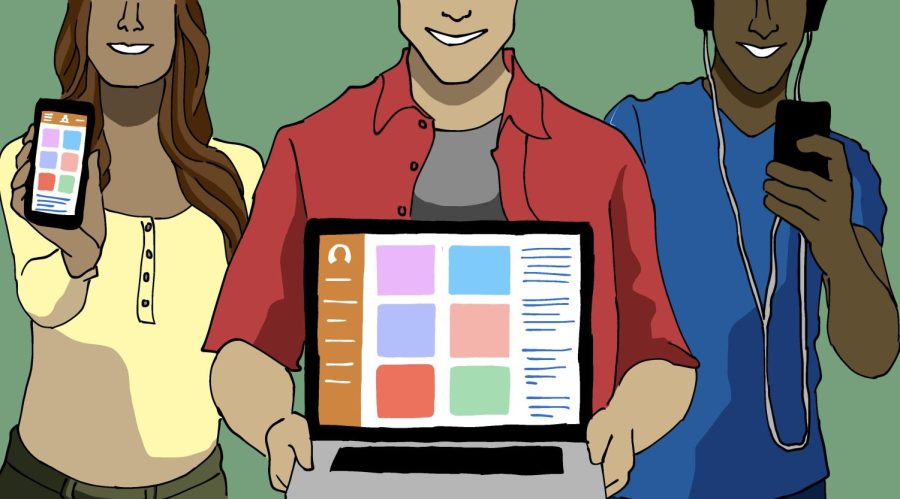Ally accessibility platform allows students to access course material more easily as MP3, ePUB
March 23, 2023
As part of an initiative to improve accessibility for students and faculty, UT integrated the Ally accessibility platform into Canvas on Monday. Ally will provide additional formats for course materials that best support different learning styles — including HTML versions for smartphones, ePub versions for tablets and MP3 versions for audio and electronic braille versions.
“One of the barriers to effective learning is if the materials are not in a format that a particular student can access and use,” said Art Markman, vice provost of academic affairs. “We want to make it as easy as possible to provide alternative formats.”
Students can use Ally by going to their Canvas course and clicking the ‘A’ icon next to the course files, and then selecting the alternate format that works best for them.
Markman and a group of faculty members were inspired by a UT System conference on technology and learned how to bring Ally to Austin after discussing the platform’s benefits.
“(Other university’s data) suggests that they have way more students who don’t have registered disabilities using the alternative formats than students with registered disabilities, which suggests that it’s really popular for students of all types,” said Jeff Freels, director of academic policy and research and Liberal Arts Honors lecturer.
While the platform is a part of a new University-wide initiative, Freels has used the Ally platform in his classroom during the early stages of its incorporation and was one of the first to have it enabled.
“I’ve been taking all the learning materials previously posted in my class and going through them (so Ally can convert the materials into accessible formats),” Freels said.
Freels describes himself as a “big believer” in accessibility and said the platform will make it easier for all students to access course learning materials to learn effectively without having to pay for outside materials.
Sigrid Martinez, social media management specialist for the Disability and Inclusion agency in Student Government, said the Ally platform is a step in the right direction to close financial barriers for students.
“Oftentimes, students spend a couple of hours trying to use an outside source, and I find that a lot of my friends and I who are needing the accommodations … sometimes have to pay for dyslexia sources that help put the text in different formats,” said Martinez, a government and anthropology sophomore. “This is a source that should be provided by the University.”
During the remainder of the spring semester, University instructors will continue to implement Ally more in their teachings to further improve the accessibility of course-learning materials for the coming semesters.












